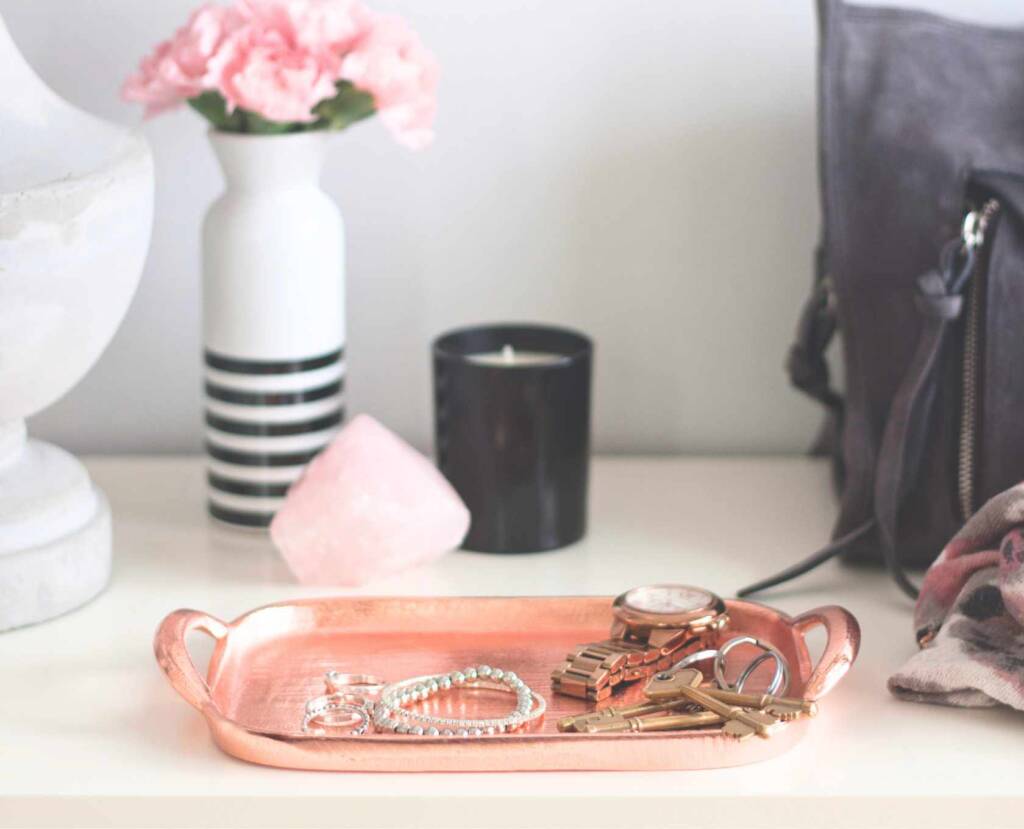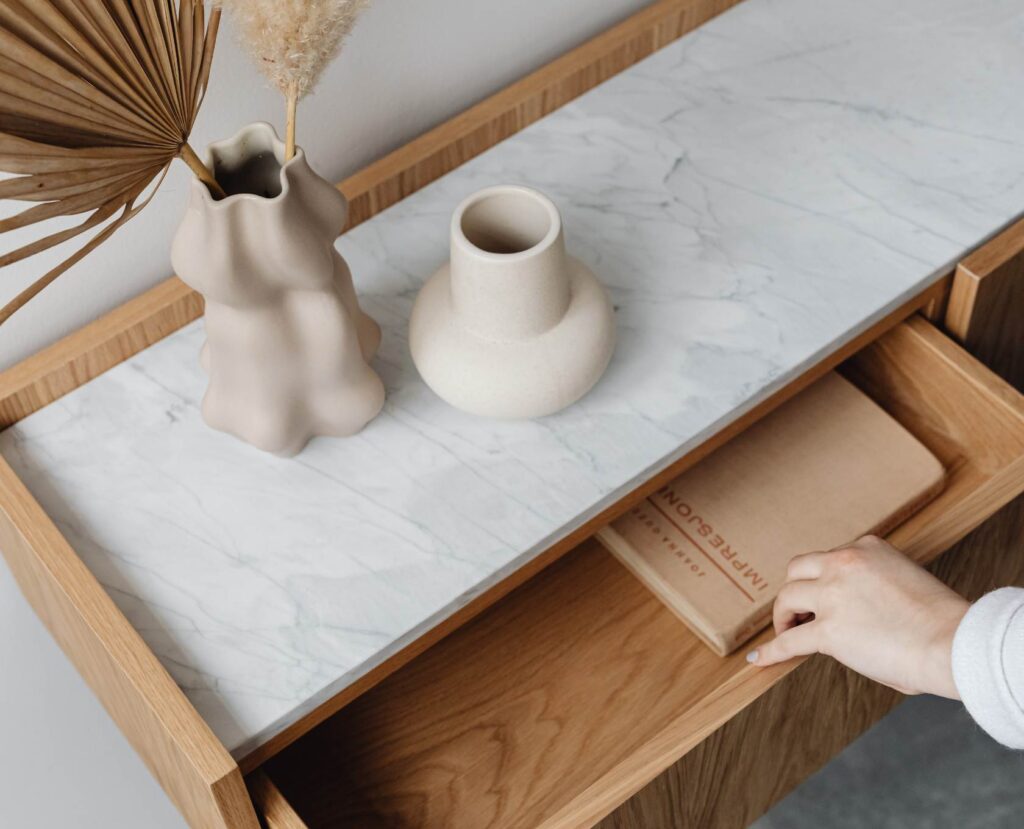Disclaimer: This post may contain affiliate links. This means that if you click on the link and purchase an item, I'll make a small commission to keep the lights running. Furthermore, as an Amazon Associate I earn from qualifying purchases. I recommend only products I have personally tried and believe can bring value to you.
Let’s get something straight. Keeping your home tidy takes work. There’s no check-out time. No point where you can proclaim victory and announce: that’s it, I’m done! Despite our best efforts, the mess creeps back in. Truth is, the answer to why your house is always messy is not a simple one, and can have various reasons and layers behind it.
There has been some recent research done on the psychology of mess and clutter. Through those studies, I’m going to try to unravel the answer – and hopefully help you gain a better understanding of your patterns and triggers – so you can be kinder to yourself.
Why Am I Messy

Have you ever been tempted to ask yourself: “Why? Why is my house always messy? How come I can never seem to keep things in order?”
If you’re someone who’s feeling this way, you’re not alone.
There are so many times I’ve berated myself wondering, is there something wrong with me? Am I just plain-jane messy?
It almost seems like we’ve attached our self-worth to the state of our house.
The truth is, judging yourself for not keeping things in order is not helpful. Sometimes, it can even perpetuate the cycle and prevent us from taking constructive action. Instead of beating yourself up for a messy home, it can actually be helpful to understand the psychology behind what makes us “messy”.
There are a few factors that may govern why your house always ends up messy. Let’s get into each and try to understand the possible causes before we arrive at a way out of the spiral of clutter.
Time
This may seem obvious but it’s important to factor this practical reason in.
If you work a hectic job and have to care for kids – chances are you may not always have the time to keep your house spic and span.
There may be days you could be feeling overwhelmed with caregiving tasks or work responsibilities. On days like these, organizing your room may not be your top priority.
This is absolutely normal and there’s no need to feel guilty if this happens sometimes. Lack of time can sometimes be the sole cause for the mess in your home.
Personality
The state of your environment can be a factor of your personality type.
Although newer research is needed on this – if you naturally gravitate towards keeping things tidy – you may have a Type A personality.
People with Type A personalities or similar traits are perfectionists and having a tidy home feeds into their nature of keeping things in their control.
On the other hand, you may actually not mind having a messy environment and even thrive in one. This might mean you are the more laid-back Type B personality.
Recent studies have actually shown that messiness can be a sign of creativity and openness.
Albert Einstein was one such ‘creative genius’, among many others, known to always have a messy desk.
So rather than viewing your messiness as a ‘problem’ – you may want to look at it as something that is a part of your personality.
You might actually be someone who thrives in mess as it helps to loosen you up to think outside the box.
If however, clutter is causing you to feel overwhelmed and stressed, keep reading on.
Mental State
If you’ve recently noticed a new pattern of messiness in yourself, and if being in a messy environment is causing you stress, this may be a sign that something deeper is going on.
For example, research has shown some link between messy environments and depression.
Depression can lead to fatigue and a lack of motivation. Because of this, depressed people often find it hard to take care of themselves and their environments.
Mess could also point to other mental conditions like hoarding. Hoarding is a primary symptom of a larger condition known as hoarding disorder. People with hoarding disorder struggle to part with things with limited utility and value, apart from showcasing other symptoms.
There are also studies that have established a link between messy spaces and heightened cortisol levels. Excess cortisol may be linked with depression, anxiety and other mental health conditions.
To be sure though, just because your home is messy doesn’t always mean you have a psychological condition.
However, if you suspect your messy environment is a sign of some underlying problem in your life or feelings of depression – talk to a mental health professional.
How Can I Break the Cycle Of Mess

Now that you have some understanding of why your house can be messy, I’ll share some practical strategies that can help keep your house mess-free for longer.
Again, however, if you do feel the problem is at a deeper psychological level, professional medical intervention may be needed.
Use Short Bursts of Time to Establish Daily Habits
Set simple, achievable daily routines.
Like taking out 10 minutes in the morning to clear out all flat surfaces.
Taking 20 minutes before bed to keep back your fresh laundry in the closet.
The idea is to keep the task super-defined and make it a consistent routine. Before you know it, this will become a habit and will run on autopilot.
It may seem seem like it’s not a lot but doing simple routines everyday will keep your home mess-free for way longer.
I have a free step-by-step guide on how you declutter vast amounts in just 20 minutes and feel instantly calmer. You can download it by signing up below:
The form you have selected does not exist.
Start Small
Many times we can’t get ourselves to start clearing up because we don’t even know where to begin.
Times like this, I find it’s best to just start small.
Just organize one drawer. Or a single cabinet. Or just a small space like the entryway.
Once you’ve done that, you’ll feel a sense of achievement and that motivation will keep you going to clear up your house further.
Give Everything A Home

Designate a spot for everything in your home.
From your keys to umbrellas to shoes to the daily paper – everything should be kept back in it’s spot.
Add catch-alls and trays that work as drop points in high traffic areas so you don’t crowd surfaces with loose objects.
Get the Right Tools
Use organizers and storage solutions to create sections and divisions in drawers and shelves.
This will help you find things easily and also make it easier to drop things in exactly the right place. Lesser the things floating outside, less the visual clutter.
Seek Help
Household chores seem less overwhelming when shared.
Get your spouse or kids involved. Set clear goals and tasks.
If you’re unable to overcome feelings of overwhelm and fatigue, talk to a mental health professional, a counselor or a therapist. They can help you get to the bottom of the issue and help chart a way forward for you.
While these changes will keep your house from getting messy quickly, for more detailed ideas – see these creative ways to keep mess away for longer.




